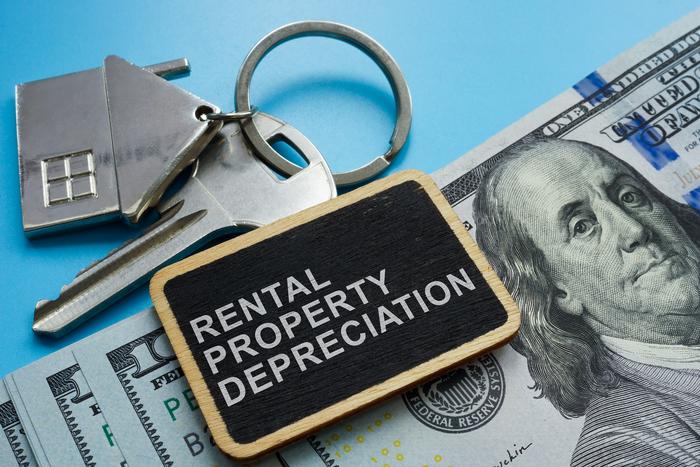Who is a real estate investor?
- A real estate investor is someone who buys, renovates, and then sells a property.
- A real estate investor is also someone who buys and rents out a property.
- Real estate investors may buy and hold properties for the long term to benefit from property appreciation or they may acquire properties with plans to sell them at higher prices in the future.
While some people have chosen to make their careers as real estate investors, others simply invest in homes as part of their overall portfolio of investments.
How to become a real estate investor?
There are a variety of paths you can take to start your career in real estate investing. As you begin your journey toward becoming a real estate investor, it's important to understand what this means. Simply put, a real estate investor is someone who invests in real estate. But there are several different types of real estate investors and investments; some may seem similar at first glance but have very different ends in mind.
If you want to get your feet wet in real estate investing, there are many different ways to do so. Here are a few of the more popular ones:
-
Buy a single-family home and rent it out. This is one of the most common first steps for budding real estate investors. After all, as long as housing prices keep rising, you’re sure to make money from renting out your home—and if they keep going up at the rate they have been lately...well, even better!
-
Buy a duplex or triplex and rent out the top floor(s). If you can find tenants who work remotely or don’t mind sharing space with other people (like roommates do), then this could be an excellent way for newbie investors to start making money right away while also building equity in their properties over time—and then someday selling them at a profit when they’re ready for something bigger and better.
-
Purchase investment properties that need fixing up before being rented out again; fix them up accordingly; then sell them at higher values than what you paid initially when buying them in order to make money on both fronts: renting/flipping properties while also boosting profits through rehabbing projects between tenants moving out and coming back again later down the road after improvements were made during previous occupants' tenure within these units themselves."
What is buy-and-hold?
You buy properties and hold them for a long time. You don't fix or flip—you hold on to your property until it appreciates in value, and then sell it for a profit.
This is essentially what buy-and-hold real estate investing is: acquiring properties with a long-term horizon in mind and seeing your investment grow over time. Unlike fix-and-flippers who are looking for quick returns on their investments (usually within one year), buy-and-holders usually don't touch the properties they acquire unless something significant happens to make them want to do so—for example, if they want to renovate or upgrade the space before selling it at some point in the future.
How to become a buy-and-hold investor
If you want to become a buy-and-hold investor, there are several options.
-
Buy a house and rent it out. This is the most common type of real estate investing. The investor purchases a property with the intention of renting it out, then collects monthly payments from their tenants until they sell the property at some point later on in life.
-
Buy a house and live in it for a few years before selling at profit. Many people are looking to start up their own careers as professional investors, but don't want to go through all the trouble of buying properties only to sell them right away; instead, they would prefer if there was another option available where they could use those properties themselves first! For example, you might have purchased your own home 10 years ago and now you're thinking about moving somewhere else (or just upgrading). In this case, instead of selling off that old property completely and starting from scratch again (which requires quite a bit more work), why not rent this out & still make money off its rental income?
What does the term fix and flip mean?
Fix and flip is a real estate investing strategy in which an investor purchases a property, renovates it, and then resells it for a profit. This is usually done with the intention of selling the property within six months or less. Fix and flip investors are looking to make money quickly by taking advantage of home buyers who want to live in their homes as soon as possible after purchasing them.
How to become a fix and flip investor
Before you can begin fixing and flipping homes, you'll need to find properties that meet your investment criteria. In other words, it's important for you to know what type of home you want to buy. You can opt for either a property that needs major repairs or one that may only need moderate updates before going on the market. Either option means that the house will need some work before it can be sold again. either way, there are many ways in which these properties can be acquired by investors: through an auction platform like Auction123; through a real estate agent who specializes in helping people with fix-and-flips; wholesalers, or even through an online listing site such as Zillow.
Find a mentor, or two.
A mentor can be helpful in many ways. A mentor can help you learn from their experience, prevent you from making mistakes (a huge benefit), and help you find opportunities and reach your goals. Mentors also build your network to expand your reach as an investor.
Stay on top of trends in real estate.
To get started, you'll need to become familiar with what's happening in the real estate market. In order to do this, you should use the internet and social media as research tools. Another great way is by talking to people who are already in the business. Keep an open mind when asking questions so that you can learn more about what it takes to succeed in this line of work.
Practice your negotiation skills, and commit them to muscle memory.
If you're interested in real estate investing, it's important that you practice your negotiation skills as much as possible. The more experience and confidence you have with negotiating, the easier it will be for you to feel confident when buying or selling a property.
There are lots of things that can help improve your negotiation skills here are a couple of ideas:
-
Get a friend or family member to play the role of an investor and ask them to negotiate with you on a property purchase offer.
-
Ask your mentor if you can shadow them on their next deal.
Conclusion
Real estate investing is one of the most challenging but rewarding career paths - if you put in the work!
To be successful, you need to be willing to take risks and learn from others who have had success before you. You can also learn from books and online resources. One of the best ways to get started is by attending seminars or classes about real estate investing. There are many great resources available online as well, which can help guide you through your first steps toward becoming a successful investor!
 (14).png)




















